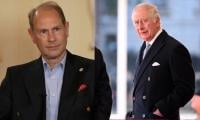Islamabad: A staggering 82% of the wealth generated last year went to the richest 1 percent of the global population, while the 3.7 billion people who make up the poorest half of the world, saw no increase in their wealth, states a new Oxfam report released Monday at the World Economic Forum in Davos, Switzerland.
Oxfam in Pakistan organised a launch event for its report ‘Reward Work, Not Wealth,’ which reveals how the global economy enables a wealthy elite to accumulate vast fortunes while hundreds of millions of people are struggling to survive on poverty pay. The report states that the number of billionaires in Asia increased from 558 in March 2016 to 680 in March 2017 (an increase of 122 in just 12 months). Their combined wealth increased by $404 billion over the same period.
While talking of inequality, renowned economist Dr. Kaiser Bengali said, “For export of every US $100, we import goods worth US $215. And the poor pays the difference. The richest 10 percent of Pakistanis pay 12% of their income in taxes while the poorest 10% end up giving 16 percent in taxes. We see economic growth in stats released by the state institutions. What we don’t see is that growth is not creating jobs. Our growth model just manifests increase in elite’s consumption patterns.”
Speaking at the launch, Oxfam’s Country Director Mohammed Qazilbash said, “We do not have authenticated data to measure the actual level of income and wealth inequality in Pakistan and how in recent years the fortunes of rich have increased. One of the major reasons of rising disparity in Pakistan is lower wages of workers’ infringement of labour rights.” He went on to add, “Minimum wage in Pakistan is a fraction of the living wage on which a family of four can live a decent life in urban centres; that is also not implemented.”
The report states that in Pakistan, income inequality has grown with the country’s richest 20% consuming 7 times more than the poorest 20%. The average monthly wage of females in elementary occupations at the national level is Rs6,280.01 (52.33% of minimum wage and 20.1% of living wage). Even the minimum wage laws are not strictly implemented. About half of garment workers in Pakistan (37.4%) receive payment below the minimum wage.
According to the report, women workers often find themselves off at the bottom of the heap. Across the world, women consistently earn less than men and are usually in the lowest paid and least secure forms of work. By comparison, 9 out of 10 billionaires are men. “Pervasive gender inequality manifested in different dimensions in Pakistan, which means that women’s work is devalued and they end up working in low-paid job and bear the undue burden of unpaid care work. As many as 87 percent of female employees in Pakistan earned less than minimum wage,” said Qazilbash.
According to the report, male agricultural workers in Pakistan earned $2.97 per day while female agricultural workers earned $1.68 per day in 2012. Again, Pakistani women spend 4.3 more hours per day than men on unpaid care and domestic work. At current rates of change, it will take 217 years to close the global gap in pay and employment opportunities between women and men, the report adds.
The report terms corporate tax dodging by keeping wealth offshore as being at the heart of this problem. In Pakistan, average top marginal corporate income tax rate has declined from 35% in 2013 to 31% in 2017 and will be further reduced to 30% in 2018, the report states. The country’s tax to GDP ratio was 12.6%, with direct taxes only accounting for 34.64% of the total tax revenue. The tax gap in Pakistan is estimated at 9.8% of the GDP, which is equivalent to 64% of the 2016-17 federal budget, the report states.
The report states points out billionaire wealth has risen by an annual average of 13% since 2010 – six times faster than the wages of ordinary workers, which have risen by a yearly average of just 2%. The number of billionaires rose at an unprecedented rate of one every two days between March 2016 and March 2017. “It takes just four days for a CEO from one of the top five global fashion brands to earn what a Bangladeshi garment worker will earn in her lifetime. In the US, it takes slightly over one working day for a CEO to earn what an ordinary worker makes in a year,” it states as an example.
Oxfam is calling governments to limit returns to shareholders and top executives, and ensure all workers receive a minimum ‘living’ wage that would enable them to have a decent quality of life. It also calls for implementation of minimum wage laws and expansion of the ambit of minimum wage to informal workers. “Eliminate the gender pay gap and protect the rights of women workers, and ensure the wealthy pay their fair share of tax through higher taxes on the rich and a crackdown on tax avoidance,” the report suggests. Oxfam estimates a global tax of 1.5% on billionaires’ wealth could pay for every child to go to school; and that cracking down on tax avoidance could save developing countries an estimated $170 billion a year.
The report also flags the need to set concrete, time-bound national targets and action plans to reduce inequality, and to increase spending on public services such as healthcare and education.
A delegation from Timor-Leste, headed by Ms Veronica Das Dores, Minister of Social Solidarity and Inclusion, on a...
Pakistani Ambassador to China Khalil Hashmi seen in this image. — APP/FileIslamabad:China-Pakistan investment and...
In this image, Child Protection Institute building can be seen. — X/@mohrpakistan/File Islamabad: Child Protection...
The National University of Modern Languages building seen in this image released on November 11, 2022. —...
President of the International Islamic University Islamabad , Prof Dr Hathal bin Hamoud Al-Otaibi, and Rector IIUI, Dr...
A representational image of a handcuffed person behind bars. — AFP/FileRawalpindi:In a significant breakthrough,...







